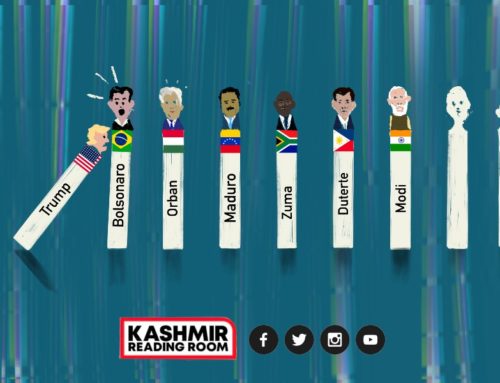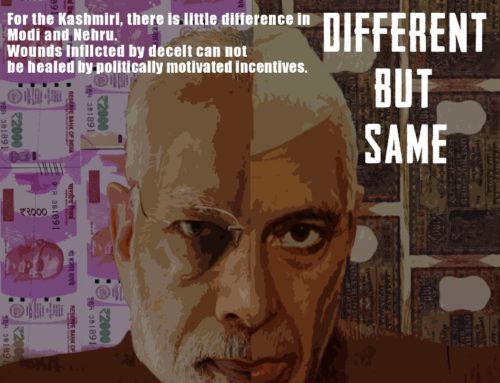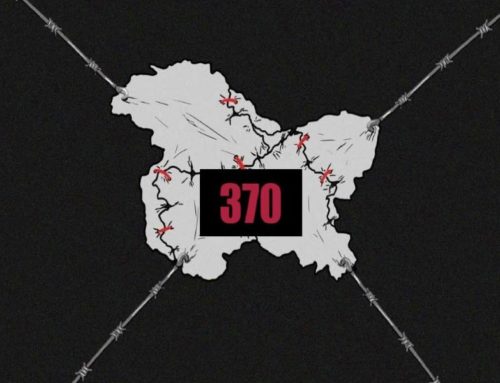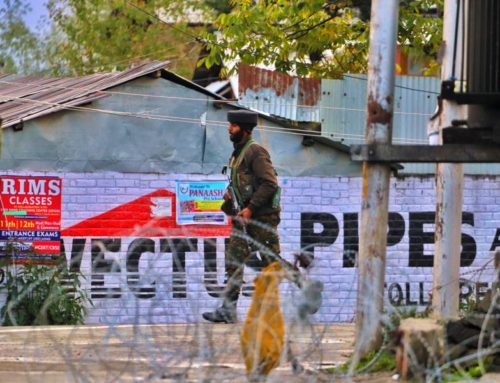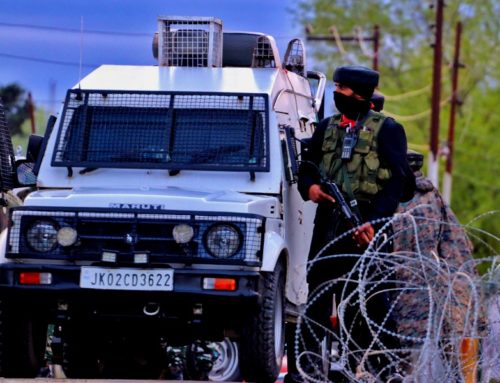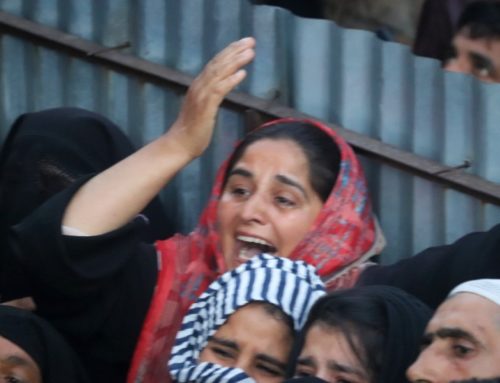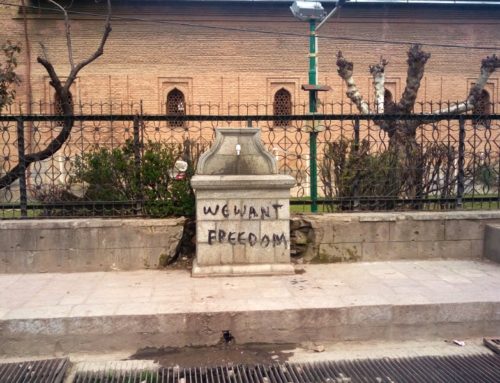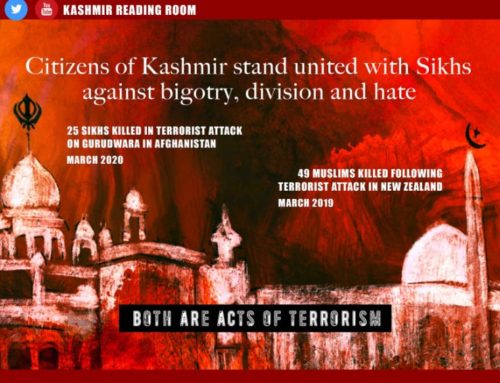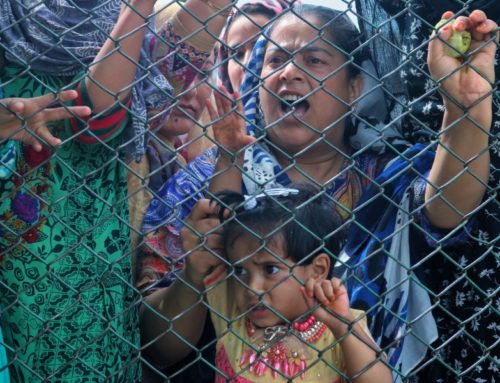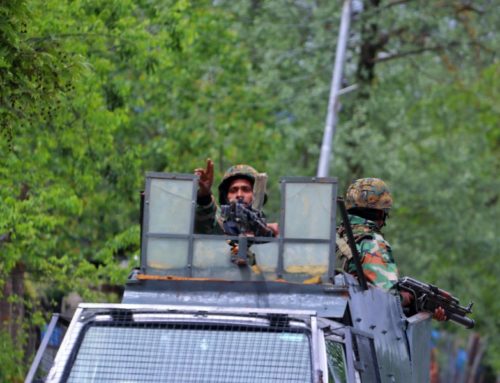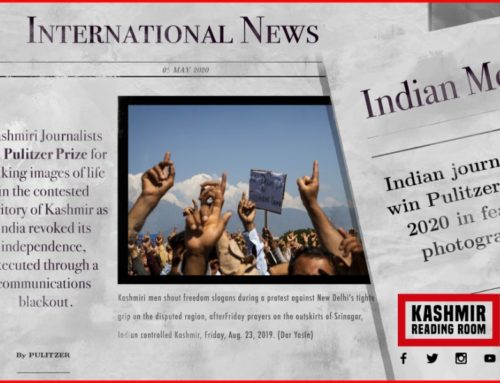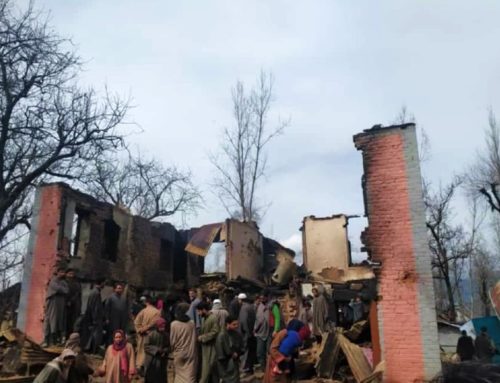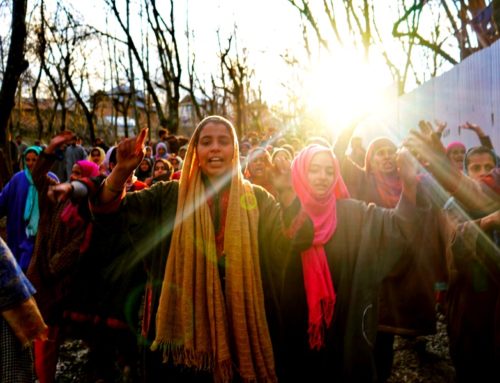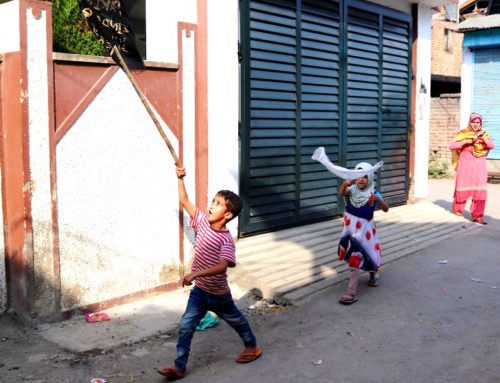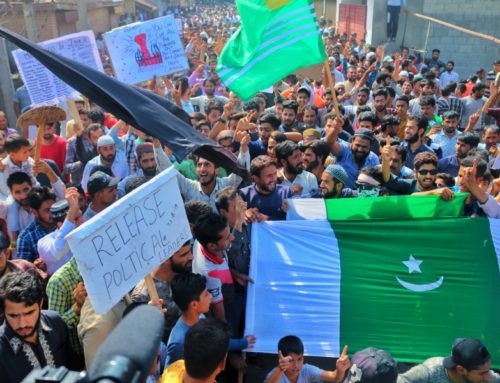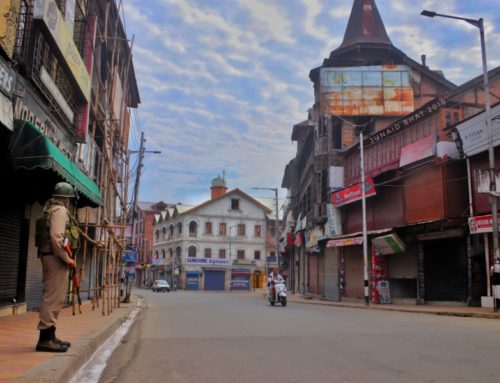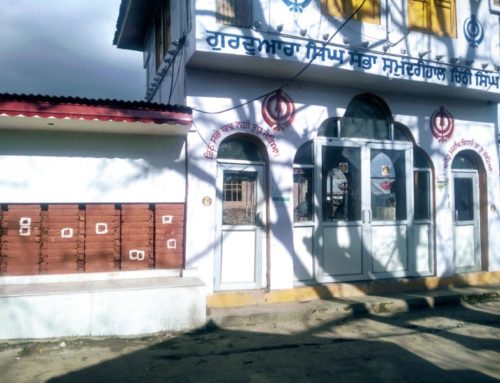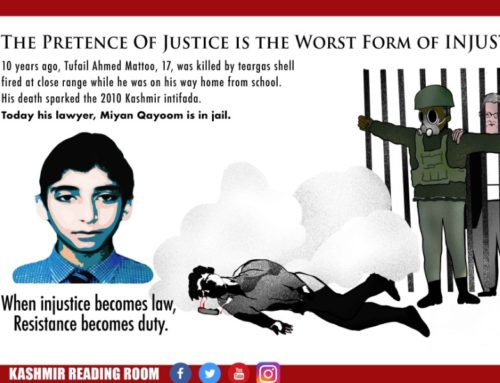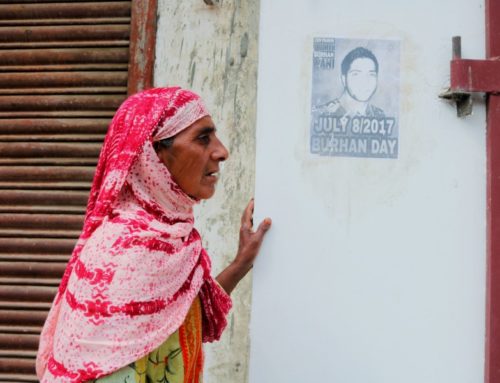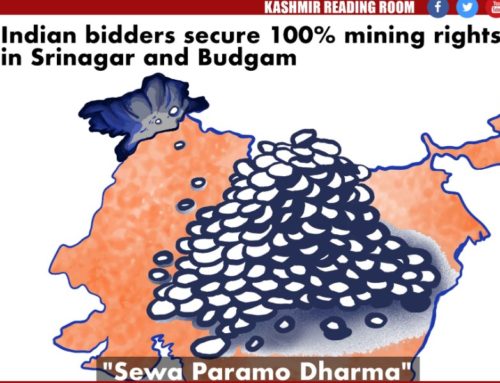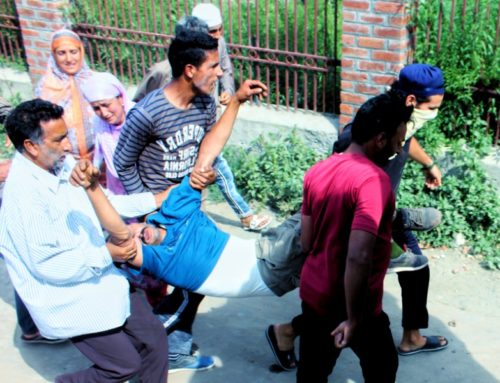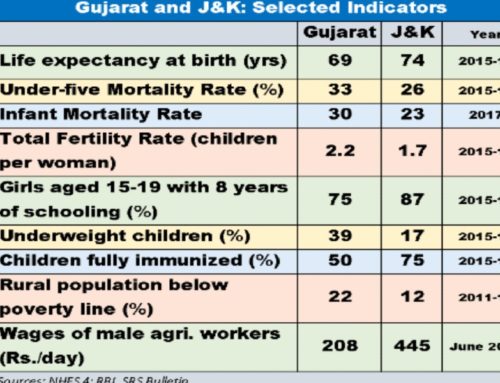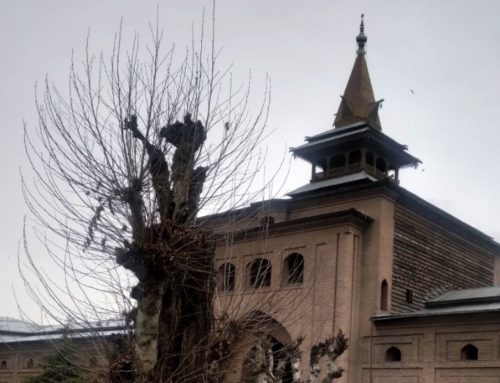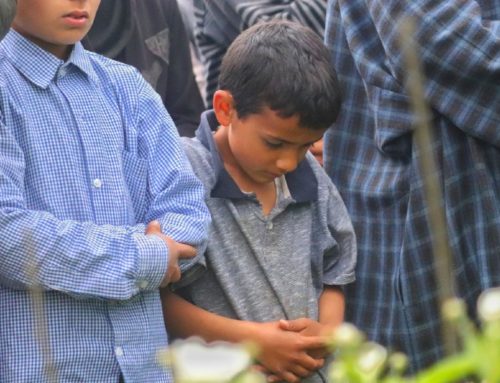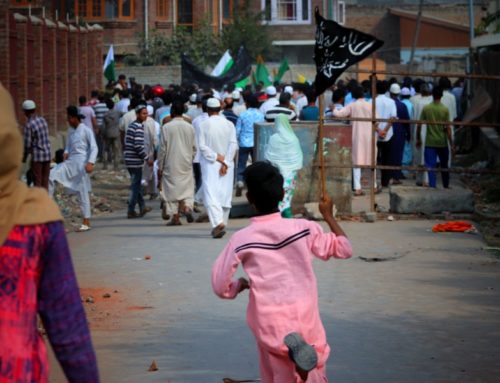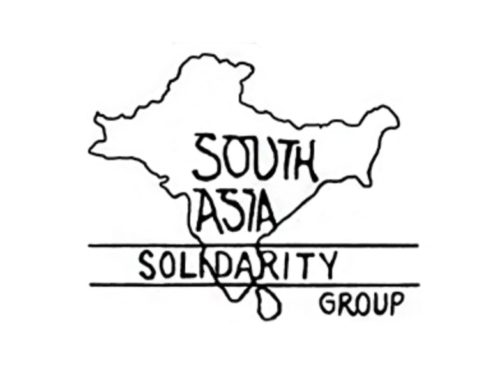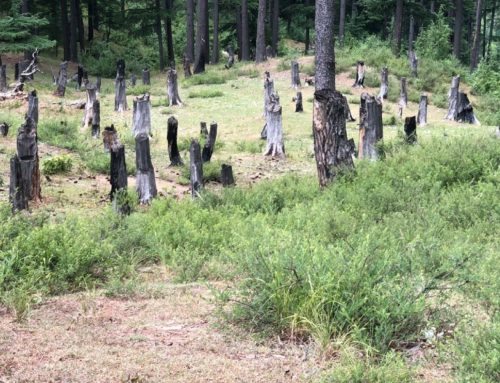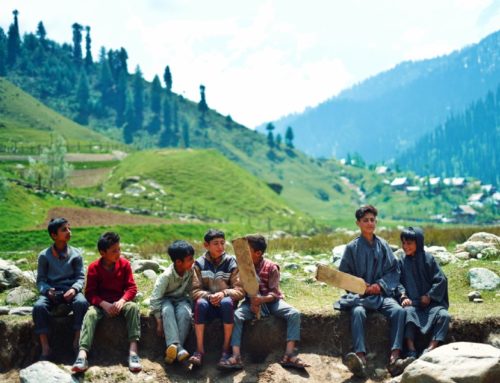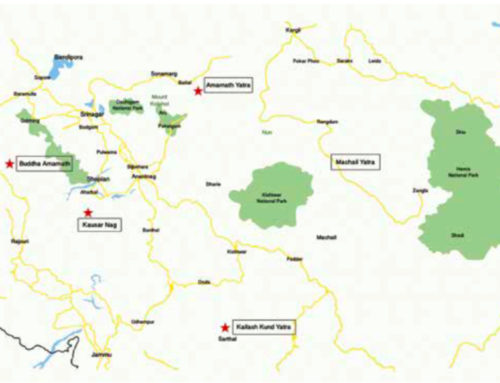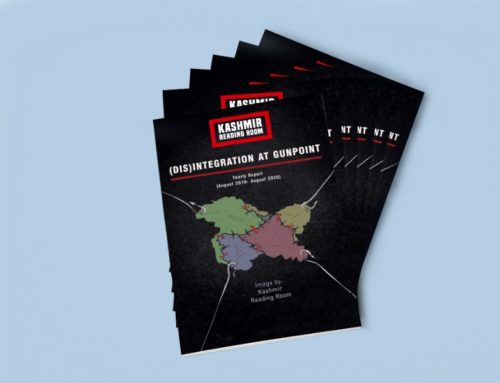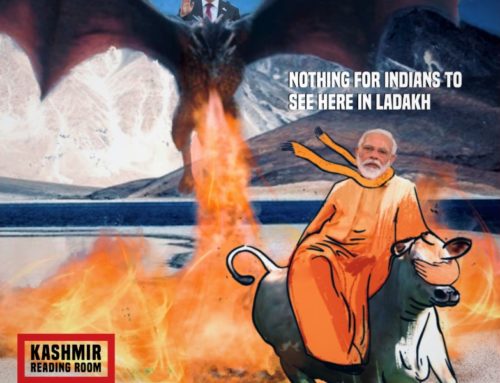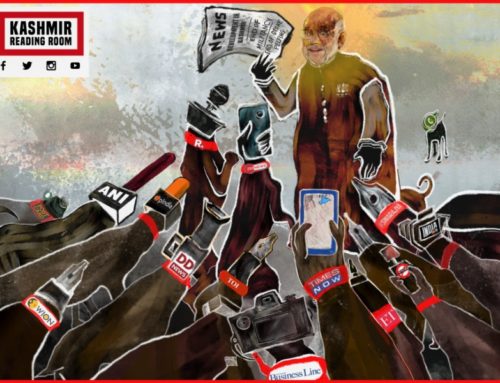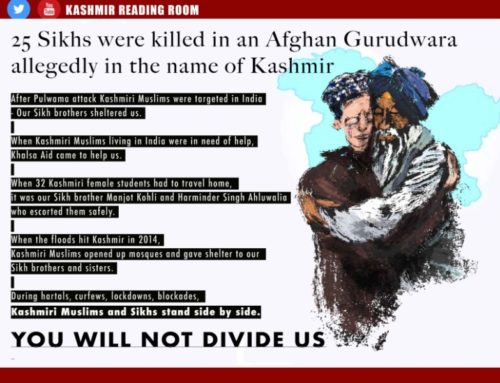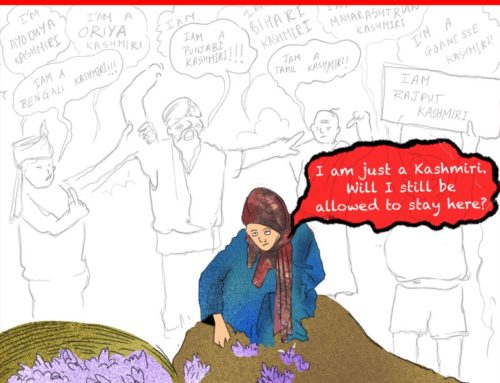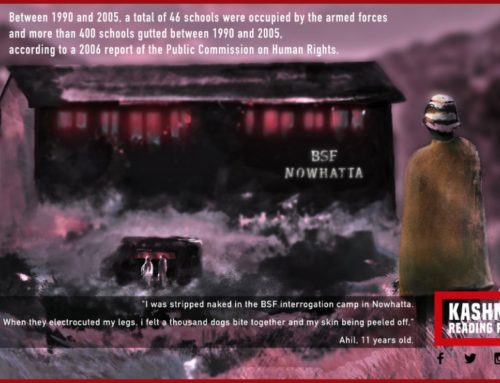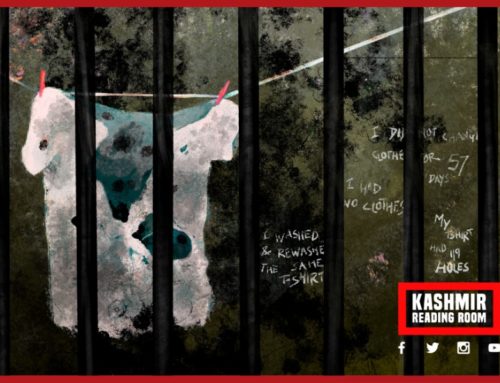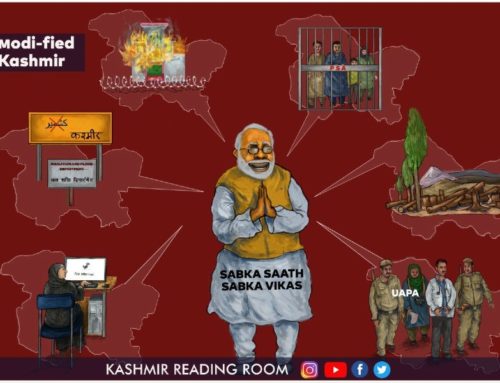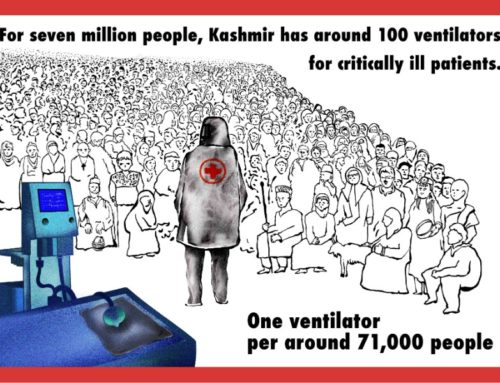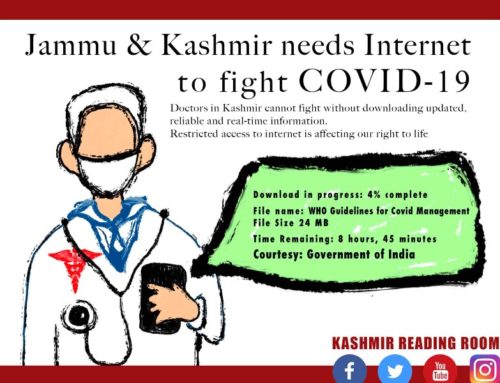Domicile Law and India’s Naya Kashmiris
Incremental Dispossession, Statelessness and Displacement
Mirza Saaib Bég
In absence of any representative government in Jammu & Kashmir, the Indian government has exercised undiluted and direct control in the region through a bureaucratic administration since 2018. 9 months ago, the Indian government unilaterally annexed Jammu & Kashmir(J&K), ending the autonomous status of the region. Today this administration notified the J&K Grant of Domicile Certificate (Procedure) Rules, 2020. These rules provide a fast-track procedure for issuance of Kashmiri domicile certificates, within 15 days, to Indian citizens. The sense of urgency to legalise the occupation of land is further underscored in the new rules since non-compliance with the time frame provided therein attracts a penalty of INR 50,000 from the salary of an errant officer.
Eligibility under the New Rules
These rules create new classes of citizens who are now eligible for domicile certificates that are mandatory for admission in schools and get employment opportunities in J&K. Indian citizens who
(a) have resided in J&K for a period of 15 years, or
(b) have studied in J&K for a period of 7 years, or
(c) have parents who have served in J&K for 10 years are now eligible for domicile of J&K.
The domicile certificate has been made mandatory for employment in Kashmir following amendments in the Jammu and Kashmir Civil Services rules. Eligible Indian citizens will also be exclusive rights in Kashmir – a region that Bill Clinton called ‘the most dangerous place on earth.’ Over the last one year, Kashmiris have observed a grotesque, euphoric celebration by Indians on the disenfranchisement and dispossession of Kashmiris through these legislative changes. In response, Kashmiris have long realised that we cannot indulge in the luxury of despair and despondency. We need to, and will continue to, engage in the persistent labour of resistance and hope despite the reckless strictures that India continues to impose on our freedom and democracy.
Departure from Established Law
The new rules are a major departure from an established body of historical precedent, law and jurisprudence. This position was guaranteed to Kashmiris under the Delhi Agreement of 1952, the Presidential Order of 1954, Article 35A of the Constitution of India and Part III Section 6 of the Constitution of J&K. These instruments and articles recognized the right of J&K to define its citizens, known as ‘permanent residents’ or popularly called ‘state-subjects’ based on a 1927 notification by the erstwhile king of J&K. Through the new rules, with retrospective effect, a ‘permanent resident’ has now been replaced with ‘domicile’ even though no instrument has ever granted such power to the Indian government. The rules grant eligibility of domicile to new classes of Indians including migrants, central government employees, Indian armed forces personnel and their children who meet the eligibility criteria. It is pertinent to add that in this new arrangement there is no space for a diaspora Kashmiri, whose parents do not have an existing certificate of permanent residence, to obtain domicile without living in the region for 15 years or serving the Indian government for 10 years. Effectively the child of an Indian citizen is eligible, even if the child has never lived in Kashmir, but the child of a diasporic Kashmiri may not be eligible if the parent does not possess an existing certificate of residence.
Despite the Indian state being overwhelmed with an economic collapse, migrant labour crisis and a pandemic, the desire to ‘conquer’ Kashmir has been funneled with stringent and virulent zeal. It drives home the message to the people of Kashmir that nothing, not even a medical emergency, can prevent the Indian state from doing what it wants to do in Kashmir.
Violation of Geneva Convention
The rules do not merely grant Indians a right of residence in Kashmir. They also engineer a situation where Kashmiris must submit certificates of permanent residence for verification of domicile if Kashmiris want the jobs where a domicile certificate is now required. The certificate of permanent residence was a constitutionally valid document and has been held by numerous judgments to be a ‘conclusive proof of residence’. Under the new rules it merely carries evidentiary value for residence. Therefore, if a Kashmiri fails to meet the new criteria, whether by malice/manipulation or by design of the new rules, the revocation of residency rights will inevitably lead to forcible transfer out of Kashmir in search of shelter and employment. All these initiatives have sparked fears of demographic change, militarised settlements, dispossession and alienation of land in Kashmir. The forcible transfers of population may qualify as a war crime under the Rome Statute of the International Criminal Court as well as a grave breach of the Fourth Geneva Convention.
From ‘State Subjects’ to ‘Permanent Residents’ to ‘Domiciles’
The changes to J&K’s residency laws are an erasure of Kashmir’s history as a Princely state, independent of India, and a project in creating homogeneity – so that there is no legal difference between a Kashmiri and an Indian citizen. Kashmiris were once the State- Subjects of a Princely State, a sovereign entity that was not formally/directly a part of British India. Under questionable circumstances, we were then made Permanent Residents of an autonomous state under Indian administration, pending a plebiscite. Today we are being made domiciles of a Union territory, without our consent.
Domicile law and NRC/CAA
The designation of ‘domicile’ is a recognition of being a permanent resident in that jurisdiction. J&K’s Permanent Resident Certificate already establishes this statutory test for residence. Therefore, it makes no sense to ask people who are already recognised as permanent residents to now obtain a certificate of domicile. This appears to be a circular exercise of re-verification of permanent residents in many ways like the controversial NRC/CAA exercise which has already seen hundreds of thousands of people being rendered stateless after failing to satisfy the criteria for documentation. This is not because they are illegal residents. Most have lived in India for decades and many were even born in India. This is because the requirement for the most destitute and vulnerable- the homeless, the millions living in starvation – to even own documents to prove their citizenship is too onerous a requirement.
Legislative History
It is quite ironic how some sections of Kashmiri Pandits have welcomed this legislative development when the existing arrangement of ‘permanent residents’ was initially made because of their agitation and specifically for the protection of their interests. The historical background to the need to make a distinction between permanent and non-permanent residents can be traced back to a decades long agitation by Kashmiri Pandits against the hiring of Punjabis in the state administration, which eventually led to a 1927 law promulgated by Maharaja Hari Singh. The 1927 notification sought to provide certain privileges to permanent residents, especially in the purchase of land and employment in J&K. The protection of the law was mostly intended for non-Muslims of the region because Muslims were not part of the popular imagination of reform. The Dogras had essentially built a Hindu state where the nature of governance and reform were predominantly Brahmanical.
Article 35A and 1954 Presidential Order
In 1954, through a Presidential Order, Article 35A of the Indian constitution recognised the legislature of Indian-administered Kashmir to define the state’s ‘permanent residents’ and what distinguishes them. All identified residents are issued a permanent resident certificate, which entitles them to special benefits related to employment, scholarships and other privileges. But the biggest advantage for permanent residents is that only they have the right to own and, therefore, buy, property in the state. All those who were living in the state as of May 14, 1954, when the law came into effect; and those who have lived in the state for 10 years anytime since, are counted as permanent residents.
Section 6 Constitution of J&K
When the Constitution of J&K was passed, Part III Section 6 of the Constitution of J&K retained the power to define ‘permanent residents’ with the state. It is important to note that the Constituent Assembly of J&K was not set up by a sanction of the Indian Constitution or of the Government of India. It was set up by the State itself acting independently of both, under the Maharaja’s Proclamation of May 1, 1951, on the advice of Sheikh Abdullah. There is no provision in the Indian Constitution under which the Constitution of J&K can cease to exist except with the consent and concurrence of the Constituent Assembly of the state.
Therefore, legally speaking, Section 6 will still apply even if Article 35A ceases to exist because Section 6 does not derive its validity from Article 35A. And while we are on this point, Indians must be reminded that Article 35A, like Article 370, is the representative of an agreement between the governments of Kashmir and India. Article 370 was the result of the Instrument of Accession and Article 35A represents the Delhi Agreement of 1952 between the leaders of Kashmir and the Prime Minister of India.
The only question then is this – What purpose does Article 35A serve in the Constitution of India when this position is already covered in Section 6 of the Constitution of J&K? The answer to this is that Article 35A was meant to guard against a challenge in an Indian court against the protections under the Constitution of J&K. In that sense, Article 35A was meant to bind India’s legal machinery from interference in a right that the Constitution of Kashmir has retained for the state itself.
Israel’s Revocation of Residency for Palestinians
It is relevant to mention that since 1995, even Israel has been escalating the use of residency revocation as a punitive measure when the Israeli Interior Ministry started reinterpreting the 1952 Law of Entry. In 1952 Israel enacted its own Nationality law and repealed the Palestine Citizenship Order of 1925. The revocation of residency forms part of a widespread and systematic policy to transfer the protected Palestinian population, it may amount to a crime against humanity under Article 7 of the Rome Statute. Israel uses the following 3 discriminatory and illegal criteria to forcibly transfer Palestinians –
- Living abroad for an extended period.
- Based on a 1995 High Court judgment , Palestinians need to establish that their ‘centre of life’ is in Jerusalem in order to maintain residency rights.
- Accused of breaching ‘allegiance’ or ‘minimum loyalty’ to Israel. In 2006, this provision was first used against 4 Hamas members elected to the Palestinian Legislative Council. Customary International humanitarian law explicitly forbids the occupier from demanding the allegiance of an occupied population.
A reminder of deceit
For Kashmir, this is just another reminder that the Indian government can alter its position at any point to suit the circumstances- Prime Minister Modi had given an assurance to a delegation of members of a pro-India political group that interests of J&K residents would be protected in government jobs and land laws. However, by these changes, all eligible Indians can compete against J&K residents for jobs and benefits indicating how much respect the Indian Prime Minister has for pro-India politicians, as well as how much he values his own words.
Effects of the New Domicile Law
- Prior to the ‘Jammu & Kashmir Reorganization Order, 2020’ a total of 480,000 Grade A to D government jobs were available only for domiciles but the new arrangement opens the field for anyone that meets the criteria without taking the consent of the people of Kashmir. While earlier a total of 480,000 government jobs were only for permanent residents, the new law opens the field for any Indian citizen who has been living in the state for a certain period. This is especially disconcerting at a time when the 2016 Economic Survey Report had pegged a quarter of J&K’s population between 18 and 29 as unemployed.
- According to a reply by India’s Ministry of Home Affairs to a parliamentary panel on February 18, 2020, there are over 84,000 vacancies in J&K of which 7,552 vacancies are at the gazetted level. So effectively there are only 7500 gazetted jobs for a population with 25% unemployment in the youth and now they are adding at least 1.5 million people to the competition.
- Further, only 30% of land in Kashmir is habitable and fit for cultivation. Already as admitted by the Mehbooba Mufti government – 4 lakh kanals, or 50,000 acres, or 20,000 hectares of land are under occupation of the Indian army. So, there is very little habitable land to go around for the new domiciles without deforestation in Kashmir. The unplanned influx of Indians can cause an irreparable impact on the ecology and livelihood of the people of Kashmir.
The diminution of our rights is set to increase the levels of unemployment as well as hasten the disenfranchisement of Kashmiris while engineering demographic changes. Without domicile status, Kashmiris cannot obtain work in most sectors of employment. While the rules are silent on this aspect, there are fears that through incremental displacement of rights, Kashmiris could also lose benefits of welfare schemes for food, health care, children, the elderly and people with disabilities.
An Erasure of Kashmir’s History
These changes are an erasure of Kashmir’s history as a Princely state, independent of India, and a project in creating homogeneity – so that there is no legal difference in a Kashmiri and an Indian citizen who has lived in Kashmir for a specified period. Kashmiris were once the State- Subjects of a Princely State. We were then made Permanent Residents of an autonomous state. Today we are being made domiciles of a Union territory, without our consent. Assessing from the developments taking place it is quite likely that the Kashmiri landscape will be seeded with predatory militarised settlements in a hegemonic fashion blatantly similar to Palestine. The implications can only be calamitous. The threat of demographic change, loss of livelihood and increased competition for scarce resources is bound to electrify an already incensed population. In any sensible democracy this situation would be alarming but authoritarian and xenophobic actions seen over the last year suggest that Modi’s India is neither sensible nor democratic.
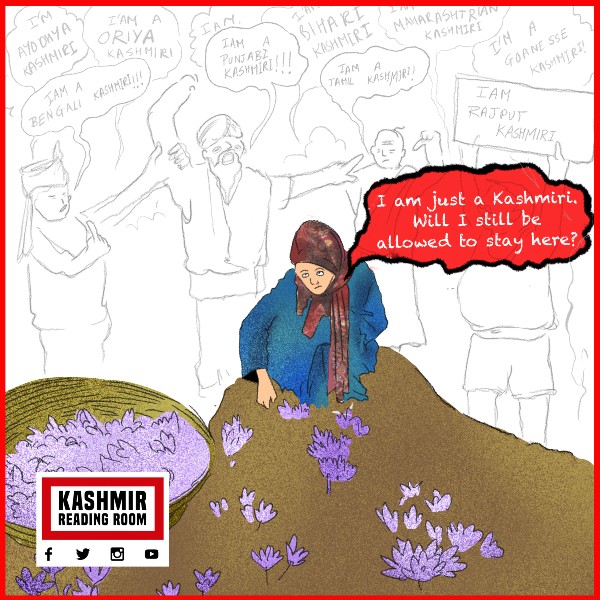
References
- Ashiq, P (18 May 2020). ‘J&K notifies amended domicile certificate rules’. The Hindu. Retrieved from https://www.thehindu.com/news/national/jk-notifies-amended-domicile-certificate-rules/article31617453.ece
- The Kashmir Wala Staff (18 May 2020). ‘Centre’s J-K domicile law: Fast track process, fine for delays, non-locals eligible’. The Kashmir Walla . Retrieved from https://thekashmirwalla.com/2020/05/centres-j-k-domicile-law-fast-track-process-fine-for-delays-non-locals-eligible/?fbclid=IwAR1hHU35FiloNYdxEzMQ_QAeu_BtQByagxgc9AIH_ulz7ILljEBC-eTOuVs
- Javaid, A (1 April 2020). ‘Modi govt redefines J&K domicile rule, extends it to those who have lived in UT for 15 years’. The Print. Retrieved from https://theprint.in/india/modi-govt-redefines-jk-domicile-rule-extends-it-to-those-who-have-lived-in-ut-for-15-yrs/392596/
- Popham, P (18 March 2000). ‘The world’s most dangerous place’ is already at war’. The Independent. Retrieved from https://www.independent.co.uk/news/world/asia/the-worlds-most-dangerous-place-is-already-at-war-282458.html
- Shah, K (9 August 2019). ‘Article 370: The Indians celebrating Kashmir’s new status’. BBC News. Retrieved from https://www.bbc.com/news/world-asia-india-49250594
- The Delhi Agreement, 1952, https://www.satp.org/satporgtp/countries/india/states/jandk/documents/papers/delhi_agreement_1952.htm
- The Constitution (Application To Jammu And Kashmir) Order, 1954 http://jklaw.nic.in/constitution_jk.pdf
- Article 35A in The Constitution of India 1949
- The Constitution of Jammu and Kashmir, 1956. http://jklaw.nic.in/the_constitution_of_jammu_and_kashmir_1956.pdf
- State Subject Definition Notification dated the 20th April, 1927 Legal Document No 44 https://www.satp.org/satporgtp/countries/india/states/jandk/documents/actsandordinances/State_Subject_Rules.htm
- Live Mint Staff (19 May 2020). ‘People from West Pakistan, Valmikis to get domicile under new rules by J-K admin.’ Live Mint . Retrieved from https://www.livemint.com/politics/policy/people-from-west-pakistan-valmikis-to-get-domicile-under-new-rules-by-j-k-admin-11589851163094.html
- Javaid, A (3 April 2020). ‘What new J&K domicile rule is and how it impacts residents of the union territory’, The Print. Retrieved from https://theprint.in/theprint-essential/what-new-jk-domicile-rule-is-and-how-it-impacts-residents-of-the-union-territory/394038/
- Beg, S.M (23 September 2019). ‘Politics of cowardice’, TRT World. Retrieved from https://www.trtworld.com/opinion/india-s-politics-of-cowardice-misguide-misinform-and-mislead-30044
- Ashiq, P (22 May 2020). ‘Kashmiri Pandits welcome amended domicile laws’. The Hindu. Retrieved from https://www.thehindu.com/news/national/kashmiri-pandits-welcome-amended-domicile-laws/article31645649.ece
- State Subject Definition Notification date the 20th April, 1927 Legal Document No. 44 https://www.satp.org/satporgtp/countries/india/states/jandk/documents/actsandordinances/State_Subject_Rules.htm
- Article 35A in The Constitution of India, 1949
- The Constitution of Jammu and Kashmir, 1956 http://jklaw.nic.in/the_constitution_of_jammu_and_kashmir_1956.pdf
- Noorani, A.G (19 August 2017). ‘Threat to Kashmir’s Existence’. Greater Kashmir. Retrieved from https://www.greaterkashmir.com/news/opinion/gk-exclusive-threat-to-kashmirs-existence/
- The Delhi Agreement, 1952 https://www.satp.org/satporgtp/countries/india/states/jandk/documents/papers/delhi_agreement_1952.htm
- Al Haq (3 July 2017). ‘Residency Revocation: Israel’s Forcible Transfer of Palestinians from Jerusalem’. Retrieved from http://www.alhaq.org/advocacy/6331.html
- Human Rights Watch. ‘Israel: Jerusalem Palestinians Stripped of Status’ https://www.hrw.org/news/2017/08/08/israel-jerusalem-palestinians-stripped-status
- Translation from Hebrew by Hamoked – Judgment of Supreme Court, May 9, 1988, June 5, 1988 http://www.hamoked.org/files/2010/1430_eng.pdf
- Human Rights Watch. ‘Israel: Jerusalem Palestinians Stripped of Status’ https://www.hrw.org/news/2017/08/08/israel-jerusalem-palestinians-stripped-status
- Ministry of Foreign Affairs, ‘Removal of Jerusalem residency of four Hamas representatives: Legal background’ https://mfa.gov.il/MFA/AboutIsrael/State/Law/Pages/Removal_Jerusalem_residency_Hamas_representatives_28-Jun-2010.aspx
- Customary International Law, Rule 130: Transfer of Own Civilian Population into Occupied Territory https://ihl-databases.icrc.org/customary-ihl/eng/docs/v1_rul_rule130
- Bukhari, F (15 March 2020). ‘PM assures restoration of Statehood, domicile status to J & K’. Daily Excelsior. Retrieved from https://www.dailyexcelsior.com/pm-assures-restoration-of-statehood-domicile-status-to-jk/
- Ali, M (22 June 2016). ‘Of 4.8 lakh Govt employees, 1.08 lakh belong to reserved categories’. Greater Kashmir. Retrieved from https://www.greaterkashmir.com/news/kashmir/of-4-8-lakh-govt-employees-1-08-lakh-belong-to-reserved-categories/
- Government of J&K, Directorate Of Economics & Statistics, ‘Economic Survey, 2016’ http://ecostatjk.nic.in/ecosurvey/Economic%20Survey%202016%20PDF.pdf
- Beigh, U (8 April 2020). ‘Will New Delhi revisit its decision of domicile change in J&K?’. Moneycontrol. Retrieved from https://www.moneycontrol.com/news/kashmir/politics-will-new-delhi-revisit-its-decision-of-domicile-change-in-jk-5120591.html
About the Author: Mirza Saaib Bég is a Kashmiri lawyer and an alumnus of NALSAR University of Law. He is currently in the UK to pursue a Master’s in Public Policy at the Blavatnik School of Government, University of Oxford as a Weidenfeld- Hoffman scholar.
All our work is available free of charge, if you wish to support our work by making a donation, so that we can continue to provide this vital service, please do so here.
This opinion article forms part of Kashmir Reading Room’s Yearly Report Aug 2019-Aug 2020. You can view the full report by clicking on the button below.
Disclaimer
The author(s) of every article and piece of content appearing within this website is/are solely responsible for the content thereof; all views, thoughts and opinions expressed in all content published on this site belong solely to the author of the article and shall not constitute or be deemed to constitute any representation by JKLPP, Kashmir Reading Room, the author’s employer, organisation, committee or other group or individual, in that the text and information presented therein are correct or sufficient to support the conclusions reached.
